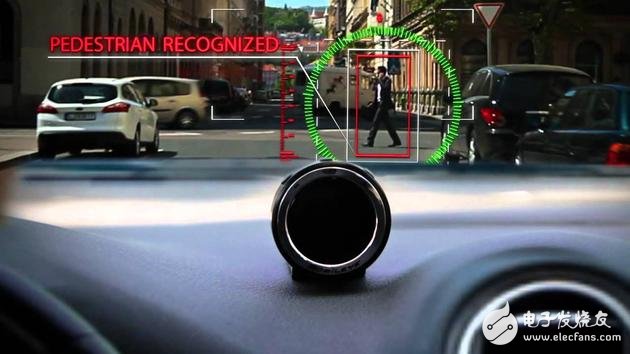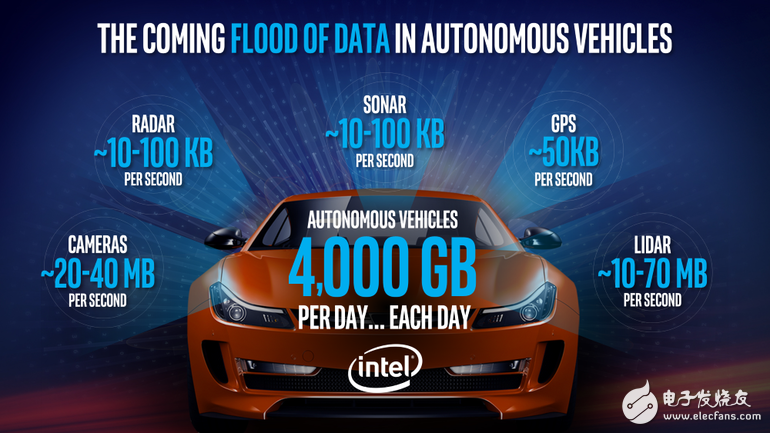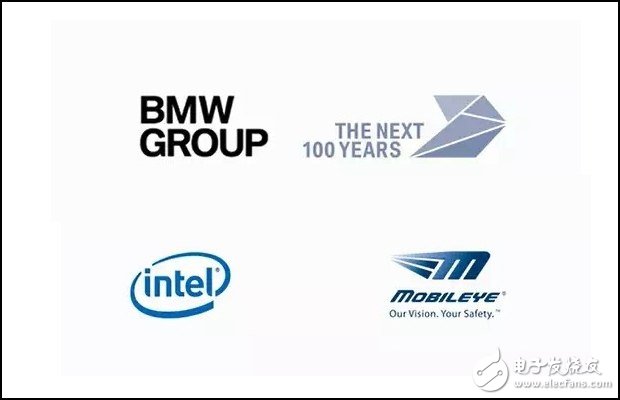After Intel lost the mobile era in the PC era, change is a thorny issue. After the deployment of smart devices, wearables, etc., it is not effective, Intel is targeting the auto-driving and mature field. Recently, Intel’s $15.3 billion acquisition of Israeli driver assistance system development company Mobileye is the best explanation. In addition to Mobileye, what layout does Intel have for autopilot? On the evening of March 13, 2017 , Intel announced the acquisition of Mobileye, a well-known Israeli Advanced Driver Assistance Systems (ADAS) manufacturer, at a price of $63.54 per share for a total price of approximately $15.3 billion. Intel said it plans to use the cash in hand to fund the deal. The transaction is expected to be completed within the next nine months and is currently approved by Mobileye and Intel's board of directors, but is still subject to review by regulatory authorities. Mobileye was founded in 1999 by two researchers at the Hebrew University of Israel. The company's business is a vision system consisting of cameras and software algorithms for solving vehicle driving problems. Mobileye's R&D headquarters is located in Jerusalem, Israel. An image processor chip developed by Mobileye is called EyeQ. All Mobileye image processing algorithms run on their EyeQ chips. After years of testing, Mobileye chips and software algorithms began to launch commercial products for sale to OEM customers. Automakers working with the company include: BMW, GM, Volvo and more. Mobileye's market capitalization on the NYSE in 2014 reached $5 billion. It is reported that after the transaction is completed, Mobileye will merge with Intel's Automated Driving Division (ADG) to form a new autopilot department. The department's headquarters will be located in Israel, led by Mobileye co-founder, chairman and chief technology officer Amnon Shashua. In the automotive electronics market, Intel is not a new entrant. In the past 10 years, the x86 processor faucet has actually appeared in different types of vehicles. For autonomous driving, Intel has to do everything from data processing to data transfer, data analysis and data security to fully support unmanned implementations and applications. In October 2015, Intel announced the acquisition of Saffron Technology, an artificial intelligence company, to increase its investment in artificial intelligence technology. Founded in 1999, Saffron was founded by Manuel Aparicio, former chief scientist of the IBM Knowledge Management and Intelligent Agency Center, and former General Manager of PeopleSoft Software, Gayle Sheppard. Over the years, the company has been deeply rooted in the enterprise software industry and has sold out some of its edge software businesses, such as a system that predicts roadside mine explosions. Like other artificial intelligence companies, Saffron's technology aims to extract useful information from vast data sets by mimicking the algorithms of how the human brain works. But unlike the rest, the company is focused on developing its own "associative memory" technology, rather than deep learning artificial intelligence such as Google and Facebook. In April 2016 , Intel was optimistic about the future development of the Internet of Vehicles. In April 2016, Intel acquired the Italian semiconductor functional safety company Yogitech and incorporated it into its IoT business unit to help Intel strengthen the function of the Internet of Things (IoT) system. Safety (FuncTIonal Safety) and performance. Founded in 2000, Yogitech is an integrated circuit functional safety analysis solution provider that specializes in adding security features to chips that are used in driverless cars and autonomous devices. . The company's flagship patented fault, Robbust, provides analytical methodology and tools to help integrate circuit design and ensure product stability, safety and availability. Ken Caviasca, senior vice president and general manager of Intel IoT, pointed out that Intel has been committed to providing high-performance IoT systems. In recent years, the IoT industry has gradually shifted from data automation to real-time data to assist decision analysis and then perform automated behaviors. The automobile industry has already made a different revolution. In April 2016, Intel's Wind River (focusing on IoT software) acquired Arynga, a company that provides GENIVI-compliant software that allows in-car computers to support over-the-air updates. Wireless transmission technology capabilities are critical to the Internet of Vehicles, and Arynga will help Intel enhance the Internet of Vehicles and autopilot capabilities, improve transmission security, and promote the Internet of Things (IoT) market. In May 2016, Intel acquired the Italian machine vision technology company Itseez. As we all know, machine vision allows computers to observe the environment and understand the environment. Driverless cars are inseparable from machine vision technology. Founded in 2005, Itseez is a privately held company. Itseez has developed software and services for driving assistance systems to help warn of possible collisions, increase driver awareness and simplify driving. Intel claims that Itseez's technology has been used in other products such as security systems. "This acquisition further strengthens Intel's efforts to win the IoT market such as automotive and video. Electronic sensing and understanding of image capabilities will lay the foundation for future innovation and market opportunities," said Douglas, Intel's senior vice president of IoT business. · Douglas Davis said in a blog post. In July 2016, BMW, Intel and Mobileye became partners to develop driverless cars with the goal of driving unmanned cars to the streets by 2021. The three companies are also preparing to open an open platform for other car manufacturers and driving companies to use their own technology. Intel CEO Brian Krzanich said that artificial driving is susceptible to traffic accidents caused by unexpected situations and inattention, and the emergence of self-driving cars will reduce the probability of accidents to some extent. Intel's data Processing power will effectively analyze all information known within the camera's field of view to predict possible impacts to improve the safety of autonomous vehicles. In January 2017, BMW, Intel and Mobileye announced that 40 unmanned BMW cars will be tested on the road before the end of the year. In August 2016, Intel announced that it would acquire the startup Nervana Systems. According to US media reports, the amount may be around $350 million. Nervana is based in San Diego and was founded in 2014. One of the company's founders and CEO, Navin Rao, said in a blog post: "With this acquisition, Intel is formally committed to pushing artificial intelligence technology at the forefront." It is said that it is now possible to overthrow the old model and enter a new era of computing development. The data center business is Intel's most profitable and fastest growing business. However, this business needs to explore products that adapt to new technologies such as voice and image recognition. In the future, artificial intelligence is expected to occupy a large part of computing tasks on servers with Intel processors. Hybrid Stepper Motor,Stepper Motor,Standard Hybrid Stepping Motor,Linear Hybrid Stepping Motor Changzhou Sherry International Trading Co., Ltd. , https://www.sherry-motor.com

